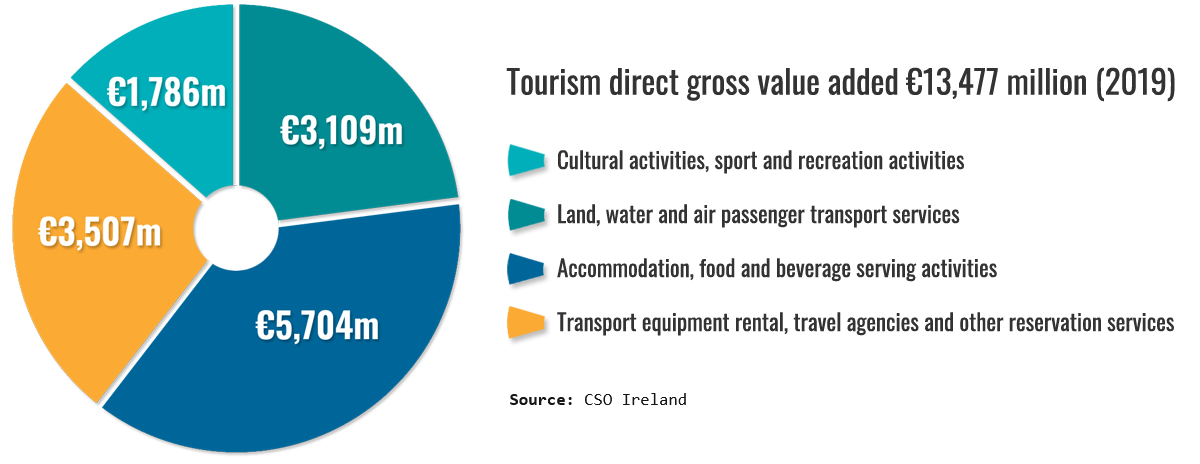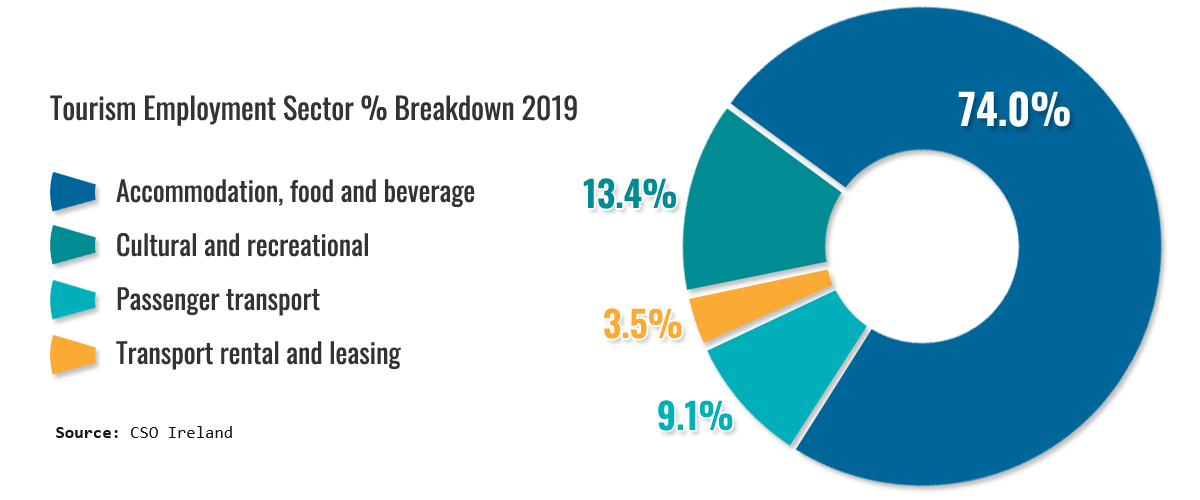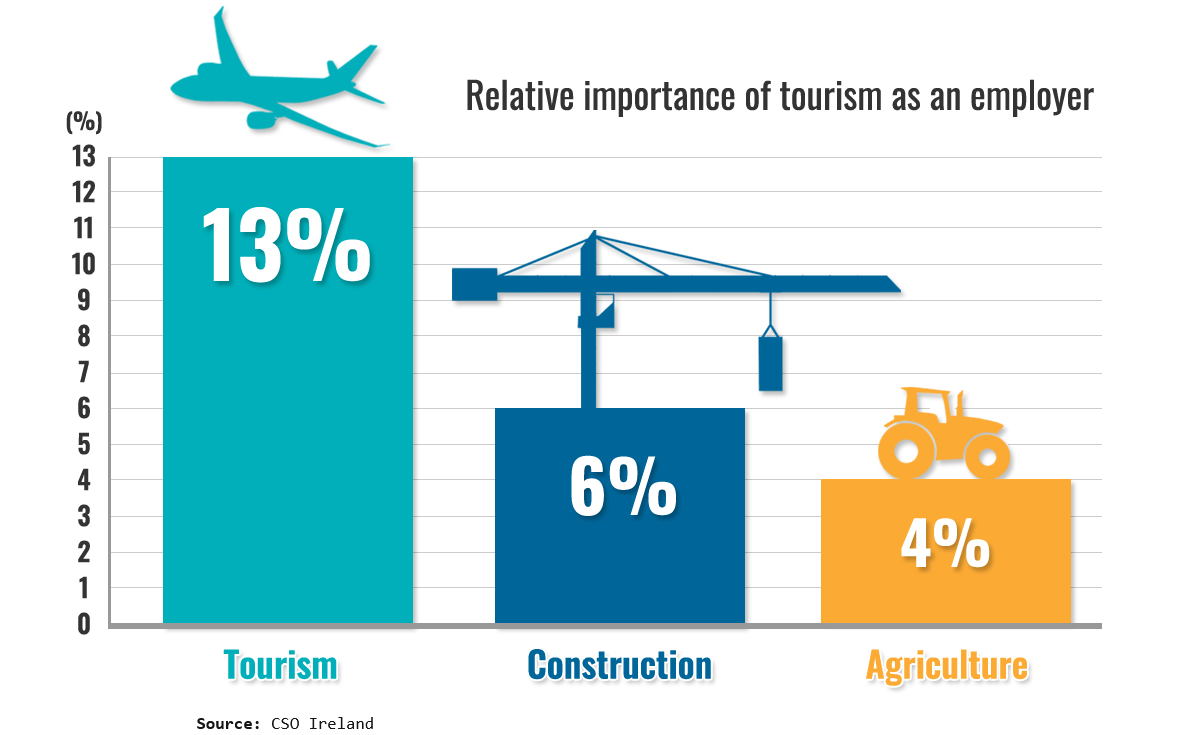
TOURISM DEEP DIVE – ECONOMIC IMPACT
CSO’s Tourism Satellite Account

The CSO has released its first Tourism Satellite Account (TSA) for the tourism sector – an internationally recognised harmonised framework for measuring tourist activity. The output highlights the importance of tourism to the national economy, utilising supply and demand side data, drawing on National Accounts and more refined employment data, including activity in tourism related industries.
The Irish Tourism Industry Confederation (ITIC) welcomes this first step in the development of TSA, an issue which it has lobbied for over the past two decades and was a key recommendation in previous industry strategies for the sector. Using 2019 data – the last full year of data pre-pandemic – the TSA also allows for the first time comparisons on tourism performance with other EU destinations. It is an invaluable tool for industry, agencies and policy makers.
KEY FINDINGS
Tourism Contribution to the Economy
Using the TSA methodology of both supply side and demand side data allows for a determination of the extent of the economic impact driven directly by tourist expenditure – Tourism Direct Gross Value Added (TDGVA). The CSO’s estimate shows that tourism contributed €13.5 billion to the Irish economy in 2019, accounting for 4.4% of total Gross Value Added (GVA) in the economy. Across the EU the average ratio was estimated at 4.5% in the same year.
The main tourism industry contributors to TDGVA in 2019 in Ireland were accommodation and food and beverage services for visitors (€5.704 billion).

Tourism Employment in 2019
The latest estimate is that there were 284,800 full-time equivalent jobs directly involved in tourism, based on TSA methodology. When those employed in the sector not directly involved in tourism is added the employment figure increases to 351,700.
45,700 businesses were involved in providing goods and services to tourism in 2019.
Seven in ten jobs in tourism were in the accommodation and food sector, with the balance almost equally divided between transport and cultural/recreation services.

| STATISTIC | EMPLOYMENT | VALUE (000s) |
|---|---|---|
| Tourism Industries | Full-time equivalent jobs | 352 |
| Tourism Industries | Hours worked | 521,190 |
| Tourism Specific | Full-time equivalent jobs | 285 |
| Tourism Specific | Hours worked | 422,164 |
Source: CSO Ireland
Tourism represents a share of more than 13% of total full-time equivalent jobs in the overall Irish economy. This identifies tourism as a major employer, especially in the indigenous sectors of the economy.

Next steps
The publication of the first TSA, using new methods and data sources, is a welcome ‘work in progress’. Further development and refinement will ensure that tourism performance and relative importance within the national economy can be more accurately measured. Inputs around employment, impacts on businesses outside tourism industries, including capital investment, together with robust data on the scale and value of day trip visits, would enhance the value of the TSA. Ideally the industry would like to see the production of TSA on an annual basis and are willing to participate with the CSO to achieve this objective.
References / Further reading
- CSO Frontier Series: Irish Tourism Sector 2019 (Tourism Satellite Account) released July 21, 2023
- Irish Tourism Sector 2019 (Tourism Satellite Account) – CSO – Central Statistics Office
- Eurostat: Tourism Satellite Accounts in Europe TSA publication for 2019, released April 2023
- Tourism Satellite Accounts in Europe — 2023 edition – Products Statistical reports – Eurostat (europa.eu)